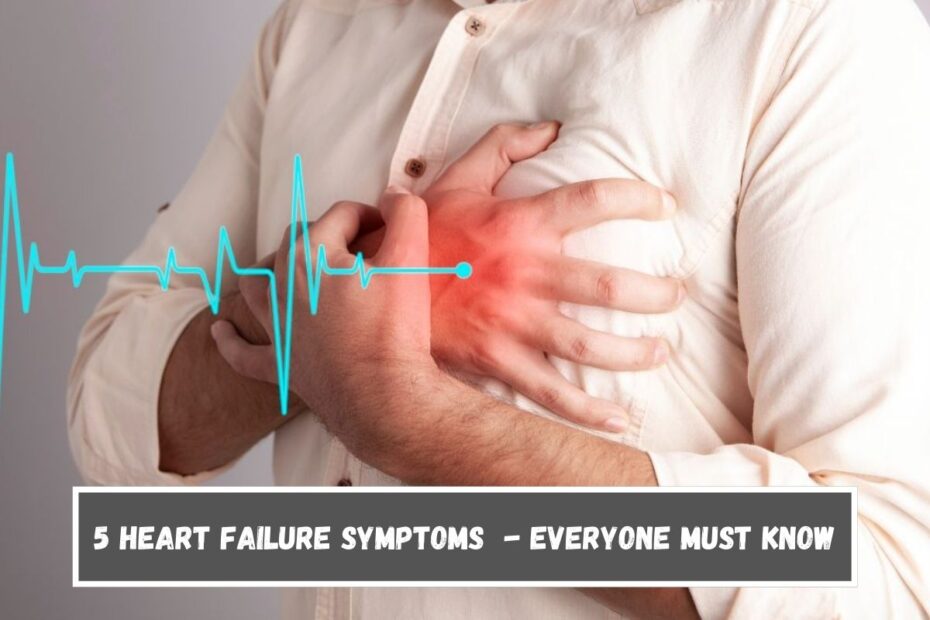5 Heart Failure Symptoms – Everyone Must Know:- Heart failure, also called congestive heart failure (CHF), is a dangerous disease in which the heart can’t pump blood well enough to meet the body’s needs. Early detection of the signs can be very important for getting treatment and care on time.
5 Heart Failure Symptoms – Everyone Must Know
Here are five important signs of heart failure that everyone should know about:
1. Shortness of Breath (Dyspnea)
One of the most common signs of heart failure is shortness of breath. It can happen while you’re moving or even when you’re not, especially when you’re lying down. When fluid builds up in the lungs (pulmonary congestion), making it hard to breathe, this condition called orthopnea happens. You may also have trouble breathing while you sleep, which can make you gasp for air when you wake up (paroxysmal nocturnal dyspnea).
2. Swelling (Edema)
Another sign of heart failure is swelling in the legs, ankles, feet, or belly. This happens because the body holds on to water when the heart isn’t working properly, which raises the pressure in the veins. Edema usually gets worse during the day and might get better at night if you lie down. In the worst cases, the belly can also swell up, which is called ascites.
3. Fatigue and Weakness
A lot of the time, people with heart failure feel very tired or weak. Heart failure makes it harder for the heart to pump blood properly, which means that tissues in the body don’t get enough oxygen and nutrients. This lack of energy can make it harder to do normal things like going up and down stairs, carrying food, or even walking short distances.
Also See:- The 10 Best Ways to Maintain Weight Loss
4. Persistent Cough or Wheezing
A cough that won’t go away, especially one that makes foamy or pink mucus, could be a sign of heart failure. Some people think they have a chest infection when they have this cough, which is caused by fluid buildup in the lungs (pulmonary edema). When the lungs get clogged, you may also wheeze, which is a high-pitched sound you make when you breathe.
5. Rapid or Irregular Heartbeat (Palpitations)
Heart failure can make the heart beat faster or more unevenly as it tries to make up for its decreased ability to pump blood. You could have palpitations, which are visible heartbeats that feel fast, pounding, or not regular. This sensation may come with dizziness or lightheadedness, which means the heart is having trouble keeping the blood flowing properly.
Additional Symptoms to Watch For
Unexplained Weight Gain: Another sign of heart failure is rapid weight gain from holding on to water. Keeping an eye on your weight every day and telling your doctor about any big changes can be helpful.
Decreased Urination: Less pee production, especially at night, can mean that you are retaining water and your heart failure is getting worse.
Confusion or Difficulty Concentrating: In the worst cases, poor circulation can make the brain work less well, which can make it hard to focus or get confused.
When to Seek Medical Attention
If you have any of these signs or notice that your condition gets worse quickly, you need to see a doctor right away. If you catch heart failure early and start treatment, you can better control it and enjoy life more. If you have a history of heart disease or are at risk for heart failure, you need to see your doctor regularly to keep an eye on your condition and make sure you are taking care of it properly.
If you or someone you care about knows about these signs, you can take steps to improve your heart health and get care when you need it.
